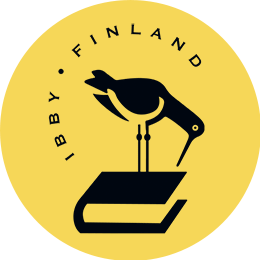The Invisible Elephant

Written by: Anna Anisimova
Translated from Russian into English by Anastasia Linnala
Eight years ago, in 2013, my first book was published. It was a short story titled The invisible elephant. I wrote the text in Saint Petersburg, but when the story was printed as a book I was living just outside Novosibirsk, in the heart of Russia. I remember pulling a thick envelope out of my mailbox in the entrance hall, opening it in the lift and leaping out of the lift with the book in my hand like one goes out into the world. I had a feeling then, that I had become visible. At that time, only a handful of Russian publishers printed books by contemporary authors. So, holding my own printed book in my hands felt as if I truly became a writer instead of just a person thinking of stories to herself. I felt apprehensive of my visibility, though. It meant being in plain sight. I suddenly felt responsible for every printed word, and I was afraid that the words would be unclear and unneeded. Joy and fear came to me with arms round each other.
I live in Helsinki now, but the book, The invisible elephant, is still with me. In a few years’ time it grew by three more short stories, and was published last year as a thick tome, My woodpecker’s music. The book is about a blind little girl. As it happens, it says nowhere in the book that the girl is a visually impaired person. I made a point of writing the text from the first person perspective, nor did I even give a name to my main character. I wanted my readers to imagine themselves in the character’s shoes as they walk through the text: how cool it is to go to the museum with your dad, to bake a cake with your mom, to have your friend visit you, to paint, to dream about meeting an elephant – the simple joys. In short, I wanted to show that my character could see the joys of life and to enjoy her life. It is all the more important and respectful to perceive one through their inner qualities, and not through the traits that are on the surface.
The invisible elephant became a dream and a friend to my character. But I could never fathom that I would one day feel like an invisible elephant myself.
For the last three years, I have been living in Finland, but writing in Russian. That is quite an intriguing state of being. Most of the time, my body is in one country, but my thoughts are almost constantly directed towards the other. The reason is that my publishers, my illustrators, my colleagues and readers are all in Russia. I am writing out of the experience that I have accumulated there.
Still, as the time goes by, the Finnish experience is starting to show in my work as well. I have accumulated enough observations and feelings to be able to share with my Russian speaking readers what I have seen here in Finland. Gradually, I have started thinking: could I also share that with those who live here, but do not speak the Russian language? How does one do that? How does one find the language?
Abruptly, I understood that I myself was that invisible elephant.
The only difference is that I exist in real life, and not in a book. That is why I do not know: how do I become visible to the Finnish children’s literature? And should I become visible to the Finnish children’s literature? Am, I by any chance, becoming invisible to the Russian children’s literature by living here? Who am I as a Russian today? How Finnish am I today? My texts, are they purely Russian or, to a degree, Finnish? Are my words from Finland to Russia clear and needed? Are my Russian words to the Finnish reader clear and needed? Should I take a side? Or can I be someone else?
When you are living in between two countries, you can’t help asking yourself thousands of different questions. And you realize that any community prefers for a person to be less ambivalent because it is easier that way. But when two paths of life coexist and two cultures blend into one within you, you do not feel like you are standing on just one of the two shores. You feel that you are standing somewhere in between. You feel that you are, in a sense, nameless, like a character of your own book.
And, finally, you understand: the elephant – visible or invisible – never stops being an elephant. And the more important thing is that the elephant exist.
On the other hand, one would hardly argue that being visible is so much more fun. Even though it is scarier, too. Those two come together, with arms around each other.